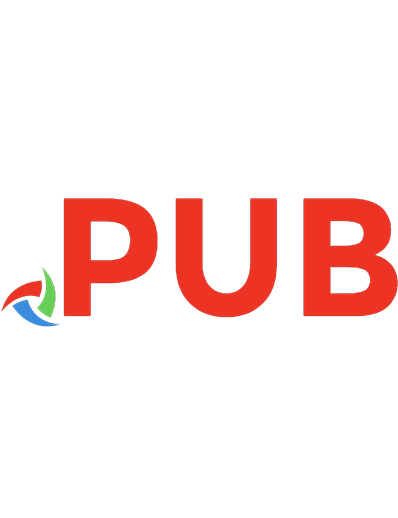Librarian's guide to online searching: cultivating database skills for research and instruction [Fourth edition] 9781610699983, 161069998X, 9781610699990, 1610699998
Bell shows you how to produce efficient, effective searches using the commercial databases that are most readily availab
344 44 4MB
English Pages xvii, 317 pages : illustrations ; 26 cm Year 2015
Table of contents :
1. Introduction to library databases --
What is a database? --
Is Google a database? --
Historical background --
Indexing and abstracting services --
From printed volumes to databases --
The library database industry today --
Discovery services --
2. Database structure for everyone : records, fields, and indexes --
Database building blocks --
Fields, records, and tables --
Beyond fields and records --
Field indexes --
Examples of indexes in common databases --
3. The searcher's toolkit : part 1 --
The first basic tools --
Boolean logic --
Controlled vocabulary --
Field searching --
Terms in the searching lexicon --
Applying the tools --
MasterFILE premier : notes and search examples --
4. The searcher's toolkit : part 2 --
Proximity searching --
Truncation --
Limits to constrain your search --
"Learning from your results" : a useful search strategy --
Your mental toolkit --
5. Social science databases --
Introduction to subject databases --
Introduction to subject databases --
Library literature & information science --
ERIC on the web --
PsycINFO from Ovid --
6. Databases for science and medicine --
PubMed and MEDLINE --
The Web of Science and the citation indexes --
Citations and the academic researcher --
7. Bibliographic databases --
WorldCat : the "OPAC of OPACs" --
WorldCat.org --
Revisiting your local OPAC --
8. Humanities databases --
America : history and life --
MLA International Bibliography --
Directory of periodicals --
9. Numerical databases --
Finding numbers --
Concepts about numbers --
Statistical Insight from ProQuest --
American FactFinder --
Bureau of Labor Statistics --
Pay & benefits at the Bureau of Labor Statistics --
Occupation information at the Bureau of Labor Statistics --
10. Focus on people --
Part 1. : information seeking behavior --
Part 2 : the reference interview --
Essential components of the reference interview --
Interpersonal communication skills in the reference interview --
Beyond the face-to-face reference interview --
11. Choosing the right resource for the question --
Questions for databases --
Questions for the web --
12. Evaluating databases --
Basic facts and figures --
Initial factual information to gather --
Testing and benchmarking --
Making a request for purchase --
13. Teaching other people about databases --
Teaching principles --
Teach to your audience --
Avoid lecturing --
Wait for answers --
Less is ore --
Transparency in teaching --
You have the right to be wrong --
Teaching with technology --
Practice --
Reframing presentation anxiety --
14. Database teaching opportunities --
Synchronous and asynchronous modes of teaching --
Teaching one-on-one --
Teaching an information literacy session --
Video tutorials for asynchronous instruction --
A staff presentation --
The full semester class.
![Librarian's guide to online searching: cultivating database skills for research and instruction [Fourth edition]
9781610699983, 161069998X, 9781610699990, 1610699998](https://dokumen.pub/img/200x200/librarians-guide-to-online-searching-cultivating-database-skills-for-research-and-instruction-fourth-edition-9781610699983-161069998x-9781610699990-1610699998.jpg)
![Librarian's guide to online searching cultivating database skills for research and instruction [Fourth edition]
9781610699983, 9781610699990, 2014038457, 161069998X](https://dokumen.pub/img/200x200/librarians-guide-to-online-searching-cultivating-database-skills-for-research-and-instruction-fourth-edition-9781610699983-9781610699990-2014038457-161069998x.jpg)

![A practical guide to legal research [Fourth edition.]
9780455237923, 0455237921](https://dokumen.pub/img/200x200/a-practical-guide-to-legal-research-fourth-edition-9780455237923-0455237921.jpg)
![Cultivating Writers : Elevate Your Writing Instruction Beyond the Skills to Ignite the Will [1 ed.]
9781551389462, 9781551383453](https://dokumen.pub/img/200x200/cultivating-writers-elevate-your-writing-instruction-beyond-the-skills-to-ignite-the-will-1nbsped-9781551389462-9781551383453.jpg)
![Academic Skills Problems, Fourth Edition: Direct Assessment and Intervention [Fourth Edition]
1606239600, 9781606239605](https://dokumen.pub/img/200x200/academic-skills-problems-fourth-edition-direct-assessment-and-intervention-fourth-edition-1606239600-9781606239605.jpg)

![Research Methodology. [Fourth edition.]
9781446269978, 1446269973](https://dokumen.pub/img/200x200/research-methodology-fourth-edition-9781446269978-1446269973.jpg)
![Research Methodology. [Fourth edition.]
9781446269978, 1446269973](https://dokumen.pub/img/200x200/research-methodology-fourth-edition-9781446269978-1446269973-q-2389278.jpg)
![Research Methodology. [Fourth edition.]
9781446269978, 1446269973](https://dokumen.pub/img/200x200/research-methodology-fourth-edition-9781446269978-1446269973-u-8415481.jpg)
![Glaucoma: A Patient's Guide to the Disease, Fourth Edition [Fourth Edition]
9781442661967](https://dokumen.pub/img/200x200/glaucoma-a-patients-guide-to-the-disease-fourth-edition-fourth-edition-9781442661967.jpg)